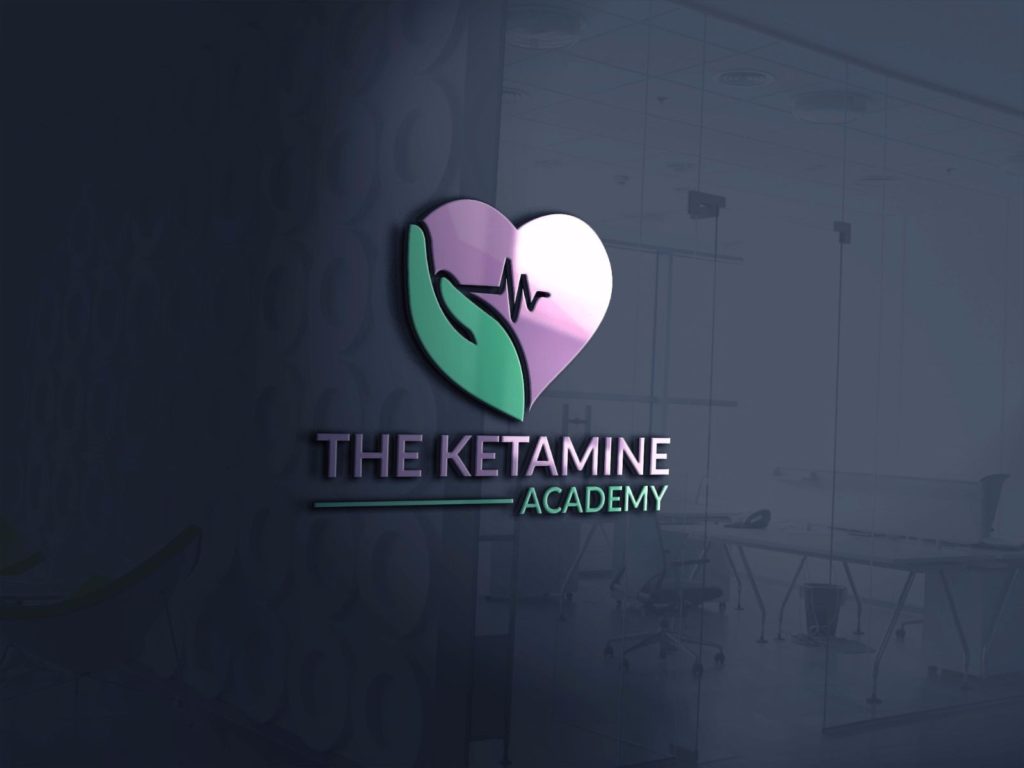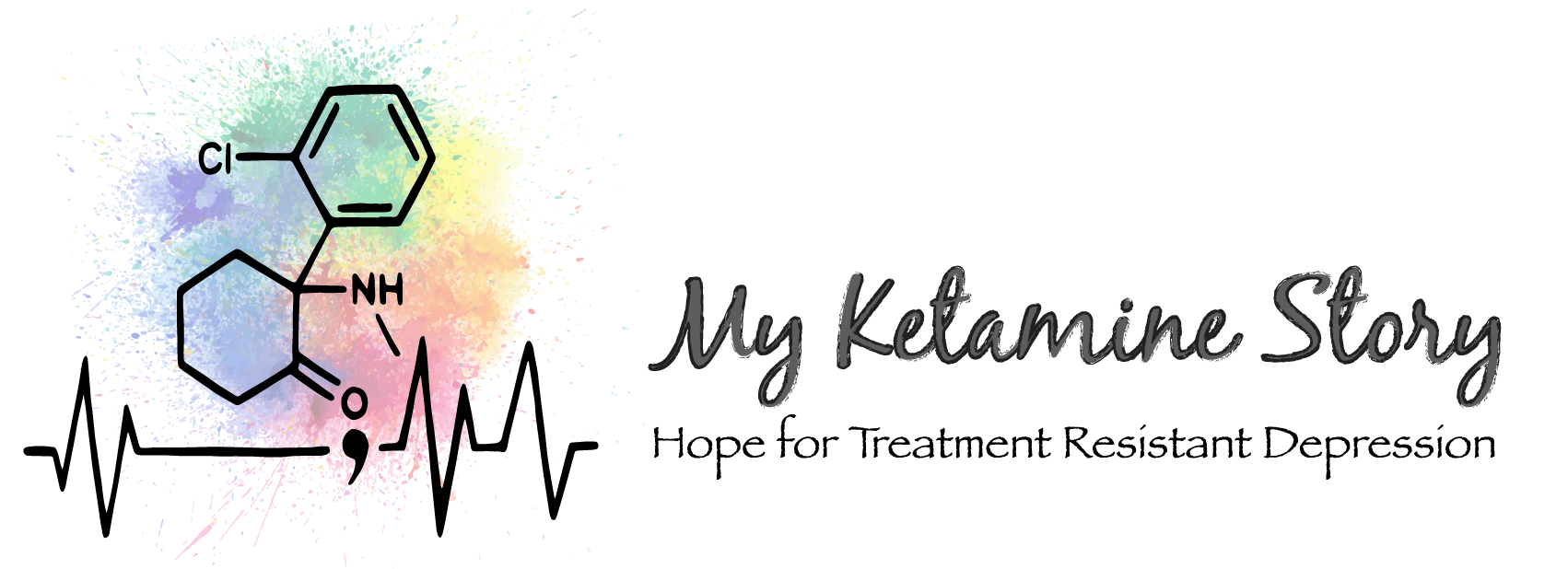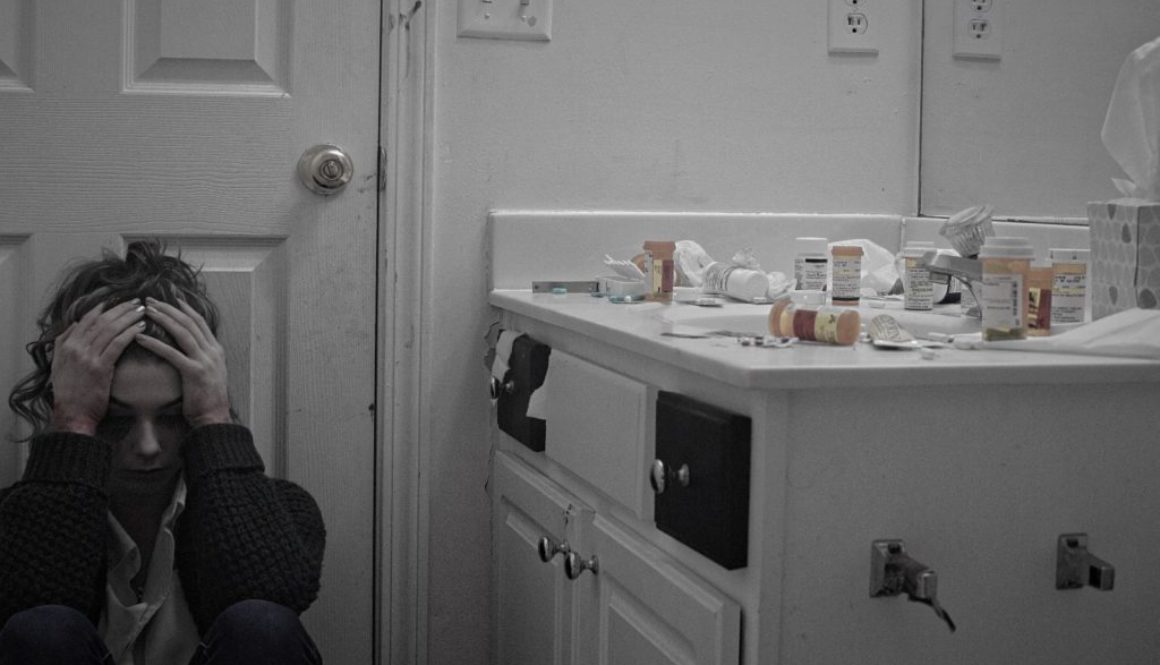My Experiences With Ketamine Therapy, Antbiotics And Depression
Hello again. It is Susan from myketaminestory.com.
I am a blogger that suffers with Treatment Resistant Depression (TRD), Anxiety, and Obsessive Compulsive Disorder (OCD). I was introduced to Ketamine for TRD in January 2015. I am forever grateful that I was. I spent the first two years focused on my recovery. I now have an excellent treatment plan in place, but that does not clear me from obstacles or pitfalls. I journal regularly. I educate and advocate for Ketamine Therapy to help treat chronic depression.
I have written for several Ketamine websites, entirely based on my experience with Ketamine therapy over the past 3.5 plus years in treatment. I am now adding the Ketamine Academy to my list of platforms I am grateful to use, in order to educate and advocate for this cutting edge therapy for treatment resistant depression.
In this blog, I really want to discuss how different medications could potentially disturb Ketamine therapy and its success at relieving the symptoms of depression. It has definitely been my experience that several types of medications hinder the effectiveness of my Ketamine treatments. I have written previously how Benzodiazepines and Marijuana can suppress the efficacy of my intramuscular Ketamine shots. This curbing in the relief I typically get from Ketamine has occurred, for me, multiple times over the close to four years that I have been using Ketamine as my antidepressant. I want to add antibiotics to my growing list of drugs that have been problematic to the usefulness that Ketamine has shown in consistently and dramatically reducing or eliminating my severe and oftentimes suicidal depression for two weeks or more.
It has been known to researchers of Ketamine that drinking alcohol before infusions compromises the treatment. I have been sober for over sixteen years, so my experience with the issues alcohol presents are personally unknown. However, I was asked about my alcohol use during my initial assessment before my very first infusion. I remember being worried that my history as an alcoholic would eliminate me as a prospective recipient of Ketamine. When in fact, I was told that clinical studies showed that those with a history of alcoholism responded more positively to Ketamine. That was reassuring. I do know that there is a time element for those still actively drinking to cease drinking prior to Ketamine treatments, and I believe it is six plus hours, but I am not 100% certain about the timeline as it was never information I needed to store and remember, as I was no longer a drinker and hadn’t been for well over a decade. It is also important to refrain from drinking alcohol for several hours after receiving Ketamine therapy.
I do recall being asked about the medications I was taking during my consultation, and I easily answered, “None.” I was not asked about whether I was taking any type of benzodiazepines during my first encounter with my Ketamine provider. It wouldn’t have mattered, because I had decided to taper my Ativan prior to my visit to the Ketamine clinic. I was down to a very small dose and decided to discontinue taking my Ativan completely at the time of my first appointment. In my mind, it was irrelevant to mention to my doctor, because I was no longer taking it, as of the previous day. It did come up during my third session, because I had been having intense anxiety attacks and was not sleeping. I didn’t think that using less than a milligram of Ativan for only a couple of weeks and stopping abruptly would be worthy of noting to my doctor. To be honest, I had convinced myself that the Ketamine would take care of the anxiety and there was absolutely no need for me to continue tapering off of it. I learned a valuable lesson. Ketamine won’t fix withdrawals. When I was at my third session, I promptly reported that I was having problems with feeling overly anxious and had a couple of panic attacks and what was that all about? I was told to continue to taper off of the benzodiazepine over the next two weeks. I was also informed that I should not take the medication within four hours prior to my Ketamine infusions or for two hours following my treatment.
It is also well established that taking benzodiazepines within hours of Ketamine therapy or for several hours afterwards can be problematic to the intended results a person will have. It is among the list of questions that will be asked of you before receiving Ketamine therapy. I strongly advise following the protocol regarding which medications or drugs should be avoided prior to and following any Ketamine treatment.
Let me now draw your attention to something as common as an antibiotic. Please note here that these have been my personal experiences. I am not a physician. I have spoken to my doctor at length about my concerns with having Ketamine treatments while taking antibiotics or shortly after completing a ten to twelve day cycle of them and how it appears to nullify the benefits I normally receive consistently following my intramuscular Ketamine shot. He certainly has witnessed my downward spiral into depression when I undergo Ketamine treatments while on antibiotics or have just finished up a prescription. The main reason I speculate that antibiotics impede the effectiveness of Ketamine treatment is directly related to my experiences.
Illnesses or infections can compromise the immune system drastically, and then the body works hard at fighting off sickness and struggles to heal. My doctor believes, and I will mention that not all physicians agree and this subject is controversial, that gut flora affects mind and body. Associations have been made between gut bacteria and emotion, suggesting that the gut microbiota, a community of microorganisms, can influence behavior and emotion. Studies have also demonstrated the effects of gut microbiota on emotional and social behaviors, such as anxiety and depression. If you combine this knowledge with the fact that antibiotics can also affect your mood, then it is no real surprise that my depressive symptoms are drastic. Numerous antibiotics have been linked to depression as a side effect. Taking antibiotics will be taxing on the gut flora and thus could be a double whammy on those individuals suffering with clinical depression. It is not at all shocking to me, and probably you as well, that my depression would be intensely problematic with the use of antibiotics.
Recently, when the topic of illness and Ketamine came up between my doctor and me, it was due to once again my having a sinus infection and having to be on an antibiotic, but also needing my scheduled Ketamine therapy. I was actually more hopeful this past go around because I didn’t get severely depressed during my infection and treatment for it. This hasn’t been my experience in the past.
I must say that I have reflected back on it now and think I was just tolerating the depressive symptoms better than I did in the past, and because of that, I may have figured the Ketamine wouldn’t be undermined by the recent prescription of Bactrim.
Having said all that, I want to refocus on how I really want to add antibiotics as drugs to be aware of in terms of the efficacy of Ketamine.
The main reason I feel it is so imperative to discuss how antibiotics can wreak havoc on depression and Ketamine treatments is because of my horrible experiences with the combination of the two over the past several years. I want to share my observations and help others that may find their Ketamine injection or infusion less potent after being treated with an antibiotic.
It is important to me to draw attention to how catastrophic it has been for me, especially in the last year, in order to make others aware of the consequences of taking antibiotics and then seeking Ketamine treatments for depression and how multiple factors could potentially affect the effectiveness of the Ketamine on the depressive symptoms.
I have been battling infection after infection over the last year or so and have been put on antibiotics for various reasons. That is not really important to this article other than to point out that I have had several occasions where the same exact result occurred, thus making me confident in believing that it is possible that antibiotics block or negate the delivery of Ketamine.
This past September, I underwent a cycle of antibiotics and my depression symptoms returned with a vengeance. I quickly went from an intense state of despondency to suicidal depression within a day or two. I called my doctor and promptly went in for a Ketamine injection. I would feel a sense of relief temporarily; by which I mean a day or two of not feeling as though I wanted to take my life. However, by the second or third day, I was once again plagued by hopelessness and despair. I called my doctor and complained about my depression and dark thoughts and the fact that the Ketamine hadn’t really given me the results I had grown to expect.
I am always put on Bactrim, as I am allergic to a slew of antibiotics and this is typically the one doctors count on to kill off infections for me. I will append that I am uncertain if all antibiotics will be troublesome for Ketamine patients, or possibly it is just me or Bactrim alone. I do find it curious that I have experienced the same exact outcome each and every time that I have had Ketamine and Bactrim in the same week, or day. Why is that?
And what do I do about my treatment resistant depression, that is only helped by Ketamine therapy, when I am fighting an infection and the doctor wants to put me on an antibiotic?
During this past illness, being on antibiotics and needing my maintenance dose of Ketamine, I considered holding off on getting my IM Ketamine injection for fear of wasting my time and money, but in the end decided to keep my appointment as it greatly affects my life and my ability to function when the depression returns. I have been super stable for months. It was basically last September when I last had a depressive episode that cause conflicts in my life, and I had thoughts of wanting to end my life. That is huge and not something I voluntarily want to subject myself to. I opted to go in and see my doctor. I explained how I was able to tolerate the Bactrim and didn’t have an episode of extreme depression, and that even though I just that morning completed my antibiotic regimen, I felt I should move forward with my Ketamine injection. My doctor agreed that maybe the fact that I am getting better at managing my emotions, been stable for months, and that my brain is also healing, that maybe I would be aided by the Ketamine despite having been on an antibiotic for the previous eleven days. It went well. I felt my usual uplift after my treatment. Unfortunately, that would not last.
I would discover an abscess on my breast that evening and see another doctor the following day, who then decided to once again put my on Bactrim in hopes of killing a possible infection from happening. I did mention that I just finished an eleven day prescription of Bactrim, but she insisted I take another seven days of the antibiotic in order to safeguard against another infection. WHAT?!?
Really?!
I started another round. I was not happy.
The very next day I found that I was fighting old demons. I managed to motivate myself enough to get to work and battled with deep sadness, self loathing, and lack of energy. My thoughts became tragic and self defeating. I attempted to fight back by using all the behavior modification and cognitive therapy tools I had at my disposal, to no avail. I found it impossible to leave my house the next two days. I canceled my therapy appointment, which for me is unheard of, as well as other responsibilities I had. I couldn’t bring myself to go to work. I called my doctor and requested an appointment to discuss my situation, the depression, and the possibility of getting Ketamine again.
I find I am arguing with myself. Should I get another Ketamine shot? I really can’t afford not to try to relieve the depressive symptoms. I am sinking into darkness and my thoughts are suicidal in nature. I need help. What can I really do?
I decide to stop taking the antibiotics and get another IM Ketamine injection and see what happens. I decide to keep my regularly scheduled appointment for the next week, just in case this round of Ketamine is neutralized and I find the depression filter switched back on, and I am struggling with the symptoms again.
It is all I can do.
It is frustrating.
It is why I am sitting in front of my laptop writing this article.
The second dose of Ketamine definitely helped! I am not swimming with the sharks. I am functioning, motivated and able to convert the negative thoughts for now. Now is all I have. I will stay in the moment and assess my mood accordingly.
I want to educate others. I want people to know what my experiences have been with being on antibiotics, which I needed to fight the sinus infection, but what that may mean for my mental illness.
I keep going back and forth as to how I might handle a similar situation in the future. Do I get the Ketamine even if It may be hindered by the infection and/or antibiotic or do I wait it out?
I really don’t know. I guess I just have to deal with today. I hope my health will stabilize and allow me several more months to heal and grow. Recovery is difficult, but achievable for me. I communicate well with my doctor. He trusts my insights and observations and we work well together. I have to trust in that.
I know the Ketamine works. If I have to get an extra dose when I am sick and on an antibiotic, I will do just that. Ketamine offers me hope. It is imperfect. Or is it? It does the job it needs to and can’t control stresses on the rest of my body. I need to accept that there are drugs that interfere with how Ketamine may work for me. I will. I know that for me there is no other medication that relieves me of my depression like Ketamine. In some situations an extra dose may be warranted. It doesn’t make me a failure, or Ketamine either.
I have options.
Ketamine gives me hope.
Until next time, feel free to comment or shoot me an email. Better yet, if you are a healthcare provider, why not sign up for the Ketamine training course today through The Ketamine Academy. Be a force of positive change. Be an option. Be a place for those suffering with Treatment Resistant Depression or Post Traumatic Stress Disorder to turn when all other avenues have been exhausted.
Ketamine is hope.
If you are interested in educating yourself further on Ketamine therapy for Treatment Resistant Depression, check out the four-part series I wrote answering questions about Ketamine use, based on my experience with Ketamine therapy over the past 3.5 plus years:
My first blog, Ketamine: Addressing Questions & Concerns focused on my early experience with Ketamine Infusions.
In part two of the series, Addressing Questions & Concerns About Ketamine Therapy for Treatment Resistant Depression I addressed questions and concerns about Intramuscular Ketamine vs Ketamine Infusion therapy.
In my third blog, Frequently Asked Questions: Redefining Depression With The Assistance Of Ketamine Therapy, I was a bit more random. I had emails with several questions and themes, and I addressed as many inquiries as I could.
In my final question and answer dialogue, Pondering Concerns & Questions: The Benefits Of Ketamine For Treatment Resistant Depression, I discussed research, clinical studies, and the need for changes to occur within our insurance companies and federal government so that maybe one day Ketamine will not be so difficult to afford or obtain, from any qualified professional.
I hope these personal blogs from a patient that suffered for over four decades with treatment resistant depression will be helpful in convincing you why Ketamine could help you or someone you love.
Originally Post On The Ketamine Academy


